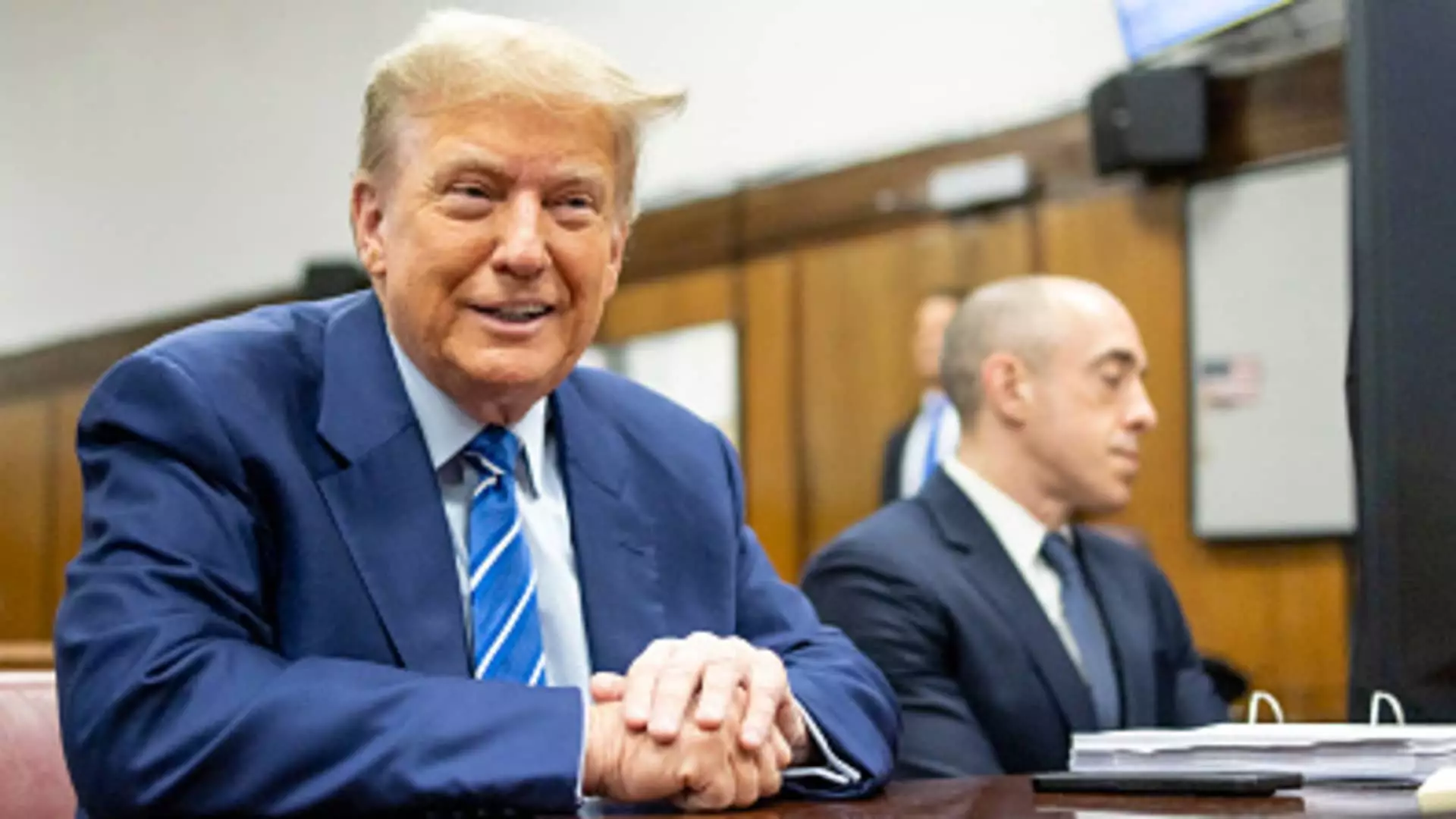The ongoing legal dramas surrounding former President Donald Trump continue to ripple through the political landscape of America. A significant development occurred recently in New York, where a judge decided to postpone Trump’s sentencing in a highly publicized hush money case, indicating that his legal battles are far from over. This decision illustrates the complexities and uncertainties in the judiciary as it navigates the intersection of politics and legal accountability.
On a recent Friday, Judge Juan Merchan indefinitely delayed the sentencing for Trump, who was convicted on 34 counts concerning the falsification of business records. Initially scheduled for Tuesday, this delay gives Trump’s legal team the opportunity to present motions aimed at completely dismissing the case. The Manhattan District Attorney’s Office has expressed support for this postponement, suggesting a need for sufficient time for legal arguments to be made, though they simultaneously maintain their stance against the dismissal.
The case itself revolves around a transaction where Trump allegedly reimbursed his lawyer, Michael Cohen, for payments made to adult film actress Stormy Daniels. This payment was purportedly made to prevent Daniels from sharing her account of an alleged affair with Trump prior to the 2016 election, an event that could have altered the political landscape at the time. Trump’s consistent denial of such an affair and his claims of political motives behind the case underline the polarization of the issue.
Trump’s attorneys, including Todd Blanche, have adopted a robust defense strategy, claiming that as President-elect, Trump should enjoy immunity from criminal proceedings. This provocative argument is grounded in the idea that a sitting president is shielded from prosecution for actions taken while in office. The legal implications of this argument extend beyond Trump’s individual circumstances, posing questions about the limits of executive privilege and the accountability of elected officials.
Blanche’s communication with the court heralds what they perceive as a significant legal victory, with claims that this judicial decision reinforces their position that the entire case should be dismissed. Such rhetoric from Trump’s camp underscores their broader narrative framing the legal challenges as politically motivated attacks. This perspective resonates with a substantial faction of Trump’s supporters, who view the investigation as an extension of partisan conflict rather than a straightforward legal matter.
The hush money case is not an isolated incident in a legal vacuum; it exists within a broader context of multiple criminal investigations into Trump’s conduct. Following his recent electoral victory against Vice President Kamala Harris, the other criminal charges he faces become significantly complicated. Legal experts speculate whether these cases might be abandoned or prolonged as Trump settles back into a position of political power.
The pending federal investigations—particularly those concerning attempts to overturn the 2020 election results and allegations of mishandling classified documents—may also be affected by this shift in political authority. As president, Trump would possess the capacity to dismiss Special Counsel Jack Smith, who has been conducting these comprehensive investigations. The interrelationship of these legal matters with the unfolding political narrative creates a unique tableau, where judicial authority appears to be in a perpetual state of negotiation with political reality.
As the situation evolves, there remains an overarching uncertainty regarding the long-term implications of these cases. The Georgia investigation into Trump’s actions faces its own set of challenges and delays, suggesting that the ex-president may benefit from a temporary reprieve. With each postponement and legal maneuver, the question arises: will accountability take a backseat to the power dynamics of political office?
Trump’s narrative that he is a target of “sham lawfare” aligns within a broader framework of dissenting political discourse in America. This reality forces both political insiders and outsiders to confront the complexities of legal accountability in a highly polarized political environment. As Trump continues to navigate his legal challenges, the implications extend beyond him, impacting how American society perceives the judicial system’s role in addressing alleged misconduct by powerful figures.
Trump’s indefinite sentencing postponement encapsulates a moment of tension at the convergence of law and politics. With public trust in governmental institutions at a low ebb, the outcomes of the numerous legal battles ahead will likely continue to shape American political discourse for the foreseeable future.


Leave a Reply